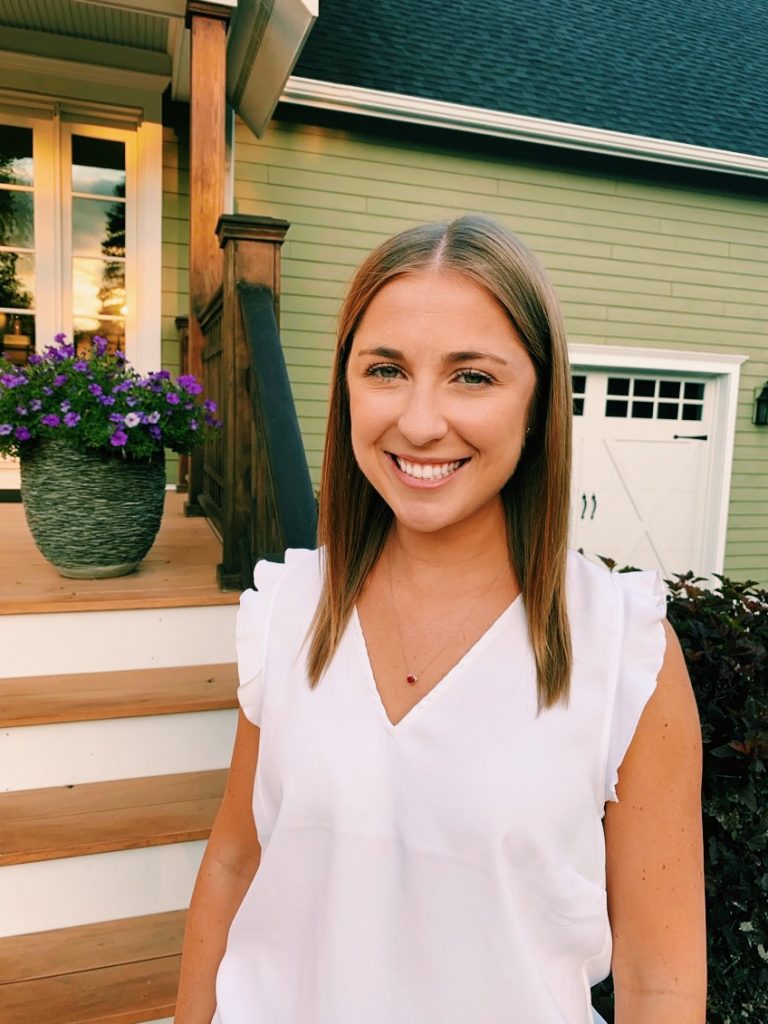(Not) Aboard the IP Train
I first heard about intellectual property (IP) law during my junior year of college. I had a friend in the school of engineering who planned to pursue a career in patent law. My friend explained to me that a patent is a way to protect someone’s invention. She also mentioned that patent law is a subset of a larger legal area called IP. When I asked how someone becomes a patent attorney, she said that you need a science degree. As an economics major, I was put-off by this statement. I thought that IP was not an option for me. I can gladly say that I was wrong. Before I explain why IP is an option for me, let me explain how I ended up at law school in the first place!
A One-Way Ticket to Loyola
Doctors diagnosed my grandmother with cancer when I was in high school. Doctors pumped her full of medicine, and she was part of an experimental clinical trial at Northwestern Memorial Hospital. The doctors gave my family hope that this new drug was going to help her. She passed away one year after being diagnosed. I was upset and frustrated. No one ever explained to me what a drug trial was or how people are picked to be part of one. I came to law school to learn more about laws that govern the healthcare field.

Loyola’s top-ranked health law program initially drew me to the school. However, visiting Loyola in person revealed much more. I attended Admitted Students’ Day at Loyola University Chicago and knew Loyola was the school for me. Admitted Students’ Day was in the Spring before my 1L year. I was able to mingle with other prospective students, sat in on a mock class in a beautiful courtroom, and discussed the school with current students and professors. I instantly fit in! I also loved being close to Michigan Avenue with excellent dining and shopping spots. It was a perfect downtown location!
Loyola’s tutor program was one thing that really stood out to me. One or two upper-class students serve as tutors for nearly every 1L class. They attend class, review the class content in their office hours, and give feedback on practice exam-type questions. I am so glad I chose Loyola! I was a confident 1L in large part because of the tutors. I also felt very supported by my fellow classmates and my professors.
Checking into IP at Loyola
One of the primary sources of support I received at Loyola was through Professor Cynthia Ho. Professor Ho was my 1L Civil Procedure professor and is the Director of Intellectual Property. Professor Ho mentioned to me that you don’t need a science degree to pursue a career in IP and that this is a common misconception. On the first day of class, Professor Ho asked us to write a brief introduction about ourselves on a notecard as well as any area of law we might be interested in. I wrote that I was interested in learning more about IP now that I knew a science degree was not necessary. From then on, she frequently emailed me information about IP-related events. She has been a great resource.
Discovering a 5 Star Place for Me
Professor Ho encouraged me to attend a speed networking event at Loyola. At this event, I spoke to several attorneys who have excelled in their IP careers without a science background. Some of these attorneys were protecting well-known brands, such as McDonalds, through trademarks. I was so excited to hear that my college assumptions about IP were wrong! I am thankful that Professor Ho kept reaching out, or else I may not have discovered that there was a place for me within IP.

Once Professor Ho piqued my interest, I began looking into IP and picked up information from IP professionals. Throughout my 1L year, I looked through IP lawyer blogs and read news articles about IP topics. I realized that while IP was a niche area of the law, there are many more career options than I expected, such as trademark and copyright law.
I also learned that IP law is often relevant in the healthcare field. For example, IP provides opportunities for companies to develop and market new drugs. There are aspects of the healthcare field that can be patented, such as medicine and equipment. I was relieved that I found a career path that excited me and even fit my initial interests in health law.
My First Stop: Discover Financial Services
I was fortunate during my 1L summer to get IP experience as an intern at Discover Financial Services. I met an IP attorney at Discover who had no science background. A majority of her work involves protecting the company logo. During my internship, I was able to attend a trademark seminar where I learned about how a trademark case proceeds in court and about federal trademark application requirements.
I also learned about patent trolls, which are entities that take out generalized patents and demand money from those who make, use, or sell the allegedly patented inventions. One project that I worked on was to help the company find patent risk management entities to protect against these trolls. Another project I worked on during my summer was reading and summarizing license agreements regarding various patents. Even without a science background, I found that this built on my 1L knowledge from contract law. I loved working on these types of projects and found it extremely exciting. The internship solidified my interest in IP law.
Adding Stamps to My Passport
I am excited to continue learning about IP! From connecting with IP attorneys to learning more about current IP topics as a member of IP Bytes, there is a lot to look forward to. I am excited about learning more in Professor Ho’s IP class this fall semester and finding a new internship in the IP world for next summer. I hope to ultimately find a position in the healthcare field which intersects with IP. It will also be exciting to be a tutor for the 1Ls this upcoming fall semester, as I loved the program as a 1L myself! But, for now, I’m eager to keep building on my IP knowledge.

Lily Liermann
Assistant Blogger
Loyola University Chicago School of Law, J.D. 2020
